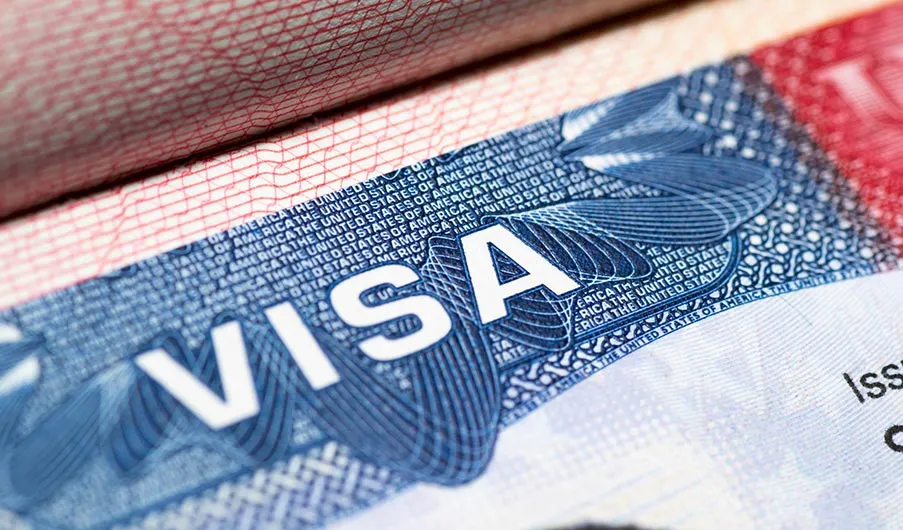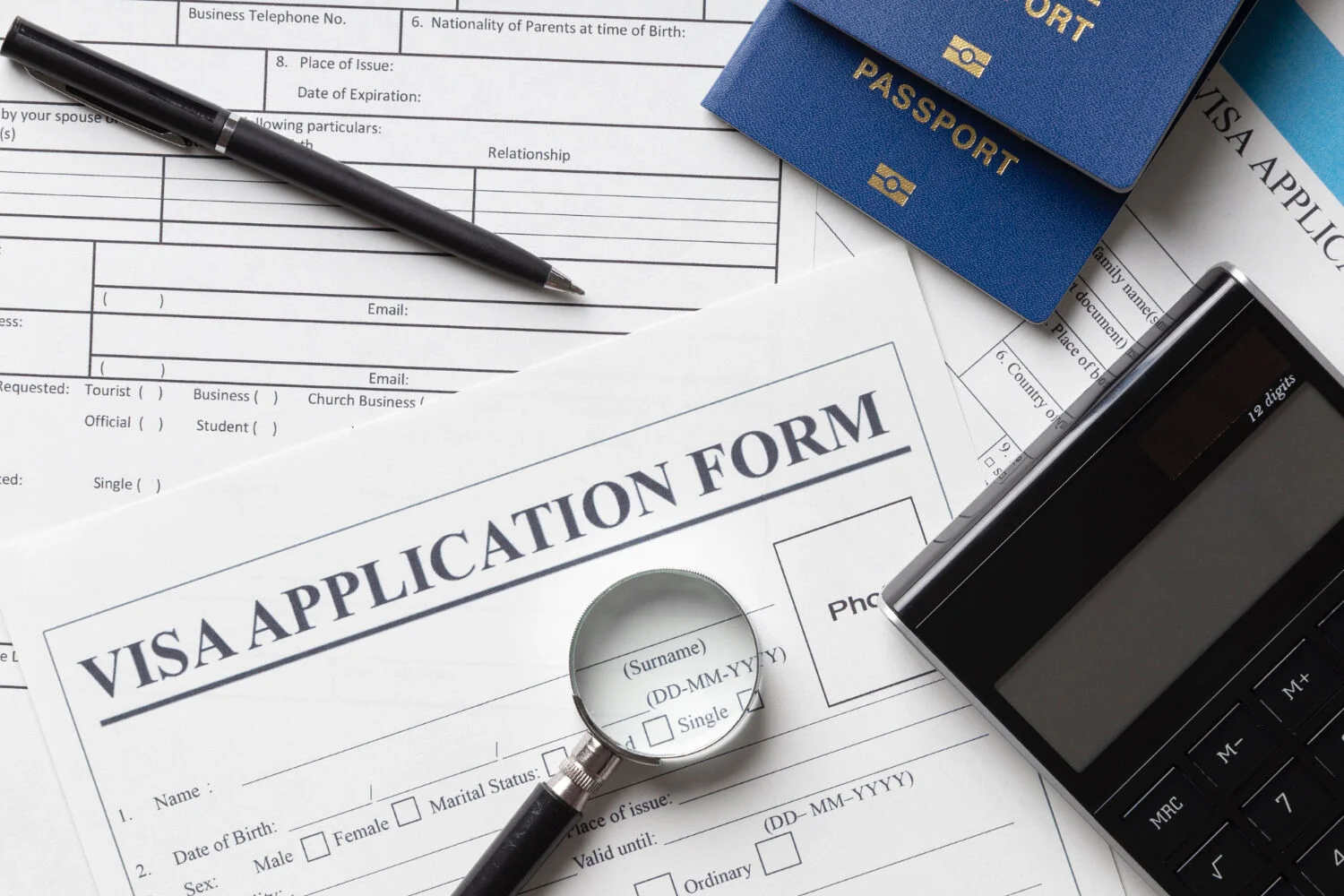The Nigeria Visa Policy 2020 (NVP 2020) was launched on February 4, 2020, as part of the Federal Government's efforts to align local visa policies with global best practices and support the Economic Recovery and Growth Plan (ERGP). The NVP 2020 aims to facilitate business, attract foreign investment, tourism, and specialised skills while maintaining national security.

New Visa Classes
Under the NVP 2020, the government has significantly expanded the range of available visa options. Instead of the previous limited number of visa classes, there are now 79 distinct visa classes.
These visa classes are specifically designed to cater to various travel purposes, accommodating a wide range of needs and circumstances for individuals wishing to enter Nigeria.
The expansion of visa classes is a significant enhancement to the country's visa policy, ensuring that travellers can apply for a visa that aligns closely with the purpose of their visit.
Whether someone is visiting for tourism, business, education, medical treatment, or other reasons, there is now a specific visa class to address their requirements.
Additionally, special visa classes have been introduced to address the unique circumstances of Nigerians born abroad with dual citizenship or those who have renounced their Nigerian citizenship. These special classes recognize the diverse backgrounds of Nigerian citizens and offer appropriate visa options.
- Visa on Arrival
The Nigerian Visa on Arrival is a convenient and flexible way for travellers from African Union member countries to enter Nigeria for brief stays, such as for tourism, business meetings, conferences, or other short-term purposes.
This provision promotes easier travel and enhances Nigeria's engagement with other African nations, fostering regional cooperation and tourism. It simplifies the process for travellers while still ensuring necessary security and administrative checks are conducted upon entry.
Visa Application Process
The NVP 2020 introduces significant changes and improvements to the visa application process in Nigeria. Here's an overview of the key elements of this revised process:

- Incorporating Embassies
The embassies and consulates abroad play a vital role in processing visa applications. The revised process ensures that these diplomatic missions are equipped to efficiently handle visa applications, inquiries, and documentation submission from foreign nationals seeking to travel to Nigeria.
- Application Centres
The introduction of application centres provides additional accessibility for visa applicants. These centres may be located in various cities or regions, both within Nigeria and abroad, to facilitate the submission of visa applications. They are designed to streamline the application process and offer support to applicants.
- Visa on Arrival
As previously mentioned, the Visa on Arrival option allows eligible travellers to obtain their visas upon arrival at Nigerian ports of entry. This option simplifies the application process for short visits and is particularly beneficial for travellers from African Union member states.
- e-Visas
The NVP 2020 introduces electronic visas (e-Visas), which enable travellers to apply for and receive their visas online through a secure digital platform. E-Visas enhance convenience and efficiency, as applicants can complete the application process electronically, reducing the need for in-person visits to embassies or application centres.
- Automation of Temporary Work Permit (TWP) Applications
The automation of TWP applications simplifies the process for individuals seeking temporary work opportunities in Nigeria. Automation can streamline the application, approval, and issuance of TWP, making it more efficient for both applicants and authorities.
New Visa Mandatory Classes
Under the NVP 2020, a comprehensive overhaul of the visa system has introduced 75 new visa mandatory classes. These classes are grouped into three main categories, each catering to specific types of visitors and durations of stay in Nigeria:
- Short Visit Visas (24 classes)
Short visit visas are designed for individuals who intend to stay in Nigeria for a relatively brief period, typically not exceeding three months. These visas are suitable for various purposes, including:
-Tourism: Travellers visiting Nigeria for leisure, sightseeing, or recreational activities can apply for tourism-specific short visit visas.
-Business Travel: Businesspersons and professionals coming to Nigeria for meetings, conferences, negotiations, or short-term work assignments can obtain business travel short visit visas.
-Seminars and Workshops: Individuals attending seminars, workshops, training programs, or short-term educational events in Nigeria can apply for seminar-specific visas.
- Temporary Residence Visas (36 classes)
Temporary residence visas are intended for individuals who plan to stay in Nigeria for a more extended period, up to a maximum of two years. These visa classes cater to various categories of temporary residents, including:
-Employment: Individuals coming to Nigeria for temporary employment, job assignments, or work contracts can apply for employment-related temporary residence visas.
- Studies: Students enrolling in Nigerian educational institutions, including universities, colleges, and vocational schools, can obtain study-related temporary residence visas.
- Internships: Participants in internship programs or practical training opportunities in Nigeria can apply for intern-specific temporary residence visas.
- Permanent Residence Visas (15 classes)
Permanent residence visas are designed for individuals who intend to establish long-term or permanent residency in Nigeria. These visa classes are suitable for various categories of individuals, including:
- Retirees: Retirees seeking to spend their retirement years in Nigeria can obtain retirement-related permanent residence visas.
- Investors: Foreign investors looking to make significant investments in Nigeria can apply for investor-related permanent residence visas.
- Highly Skilled Immigrants: Individuals with specialised skills and qualifications that are in demand in Nigeria can obtain highly skilled immigrant-related permanent residence visas.
- Spouses: Spouses of Nigerian citizens or permanent residents may also be eligible for specific spouse-related permanent residence visas.
FAQS
What is the Nigeria Visa Policy 2020 (NVP 2020)?
The Nigeria Visa Policy 2020 (NVP 2020) is a comprehensive framework introduced by the Nigerian government to reform and modernise the country's visa policies. It aims to enhance ease of travel, attract foreign investments and tourists, and ensure national security while aligning with global best practices.
When did the NVP 2020 come into effect?
The NVP 2020 officially came into effect at all ports of entry and Nigerian Missions on October 1, 2020.
How many new visa classes are introduced in the NVP 2020?
The NVP 2020 introduces 79 distinct visa classes, significantly expanding the range of visa options to cater to various travel purposes.
What is the Visa on Arrival option under the NVP 2020?
The Visa on Arrival option allows eligible travellers, particularly passport holders of African Union member states, to obtain their visas upon arrival at Nigerian ports of entry. It simplifies the visa application process for short visits.
Are there exemptions from the visa requirements under the NVP 2020?
Yes, there are four categories of visa exemptions:
- Citizens of Economic Community of West African States (ECOWAS)
- Visa abolishment agreement countries
- International organisations
- Countries with reciprocity visa waiver agreements
What are the key changes to the visa application process in the NVP 2020?
The NVP 2020 introduces several improvements to the visa application process, including the incorporation of embassies and application centres, the introduction of Visa on Arrival and e-Visas, and the automation of Temporary Work Permit (TWP) applications. These changes aim to make the process more efficient and accessible.
What are the three main categories of the new visa mandatory classes in the NVP 2020?
The new visa mandatory classes in the NVP 2020 are grouped into three categories:
- Short Visit Visas (24 classes) for visits of up to three months.
- Temporary Residence Visas (36 classes) for stays of up to two years.
- Permanent Residence Visas (15 classes) for long-term or permanent residency.
Who can apply for Permanent Residence Visas in Nigeria under the NVP 2020?
Permanent Residence Visas are designed for various categories of individuals, including retirees, investors, highly skilled immigrants, and spouses of Nigerian citizens or permanent residents.
How can I identify and apply for the specific visa class that suits my travel purpose?
Each visa class in the NVP 2020 is assigned a unique code for easy identification and processing. You can consult with the Missions or use online resources to determine the appropriate visa class for your travel purpose and follow the application process accordingly.
Where can I find more detailed information about the NVP 2020 and its implementation?
You can visit the official website of the Immigration Service for comprehensive information on the NVP 2020, including visa requirements, application procedures, and updates on its implementation.